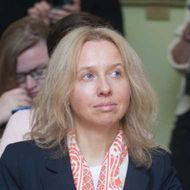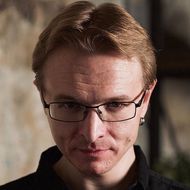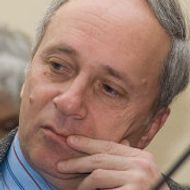The article ‘Academic Historians in Russian Media: A Selfie-session’ by HSE Professor Irina Savelieva and postgraduate student Zarina Gatina has been published in the journal of the Polish Academy of Sciences ‘Rozprawy z Dziejów Oświaty’ (p. 11-32). This article is based on an interview and concerns the study of non-academic forms of historical knowledge.The article ‘The Time of ‘Bubbles’, or on the Phenomenon of Academic Attestation in post-Soviet Russia’ by HSE Lecturer Kira Ilina has also been published in the journal (p.33-50). Her research is dedicated to the ‘bubble’ system of post-Soviet academic attestation.
The article ‘Two-Faced Status of History: Between the Humanities and Social Sciences’ (83/HUM/2015) by Irina Savelieva, Professor at the Faculty of History was published in a series of working papers ‘Humanities’. The author explains why history has not become a ‘real’ social science, although historians who represent the most advanced trends within the discipline aspired to this. Read more
The article ‘Popular Knowledge Of The Past In Discussions On A City Online Forum’ (WP BRP 78/HUM/2014) by Alexander Makhov, Postgraduate Student at the Faculty of History was published in a series of working papers ‘Humanities’. The article covers the analysis of the past in discussions during a city online forum. The author tries to conceptualize the nature of popular knowledge. Read more
The article 'To Invent Or Copy: Ethnic And Spatial Images Of The Pre-Photographical Epoch' (WP BRP 77/HUM/2014) by Elena Vishlenkova, Professor at the Faculty of History was published in a series of working papers ‘Humanities’. The research is dedicated to theoretical aspects of visual culture and national imagination analysis in Russian Empire from the second half of the 18th century to the first third of the 19th century. Read more
Associate Professor at the Department of Social History Oleg Voskoboynikov has won the Humanities Prize 2014 for his translation into Russian of French art historian Roland Recht’s Le croire et le voir: L'art des cathédrales, XIIe-XVe siècle (Believing and Seeing, The Art of Gothic Cathedrals) in a volume published by the HSE Publishing House. The prize was awarded by the French Ambassador to Russia, Jean-Maurice Ripert who signed a certificate at the ceremony for the winner to travel to France.
Igor Fedyukin spoke about the role of ‘idealists’ in educational innovations during the time of Peter the Great in a speech at the European University Institute (Florence, November 3, 2014), and at an international colloquium ‘European Innovations, Norms and Models in the Russian Empire: 18th – early 20th centuries’ (Lyon, November 7, 2014), organized by the University of Paris I Pantheon-Sorbonne and Urals Federal University with the participation of École normale supérieure de Lyon.
Professor Apollon Davidson and Associate Professor Antonina Sharova presented their reports during the International Conference ‘Russia and Britain – Cultural Interactions in the 20th Century’.
As part of organizational reform at HSE, two more ‘big’ faculties are being created – the Faculty of Economic Sciences and the Faculty of Humanities. These faculties will include educational and research divisions in their corresponding fields. Changes will also take place in the structure of HSE’s Moscow State Institute of Electronics and Mathematics.
From October 7-9, the second annual ‘Dynamic Middle Ages’ school of young medievalists took place in Moscow. After its conclusion, participants talked about what they find interesting in the Middle Ages and the parallels they see between those times and today.
On 26 September Professors Mikhail Boytsov and Oleg Budtnisky were awarded tenure at the meeting of HSE Academic Council. The students, faculty and staff of the Faculty of History congratulate our colleagues and wish them every success in their academic careers!
 Principles and Forms of Sociocultural Organization: Historical Contexts of Interaction
Principles and Forms of Sociocultural Organization: Historical Contexts of Interaction












